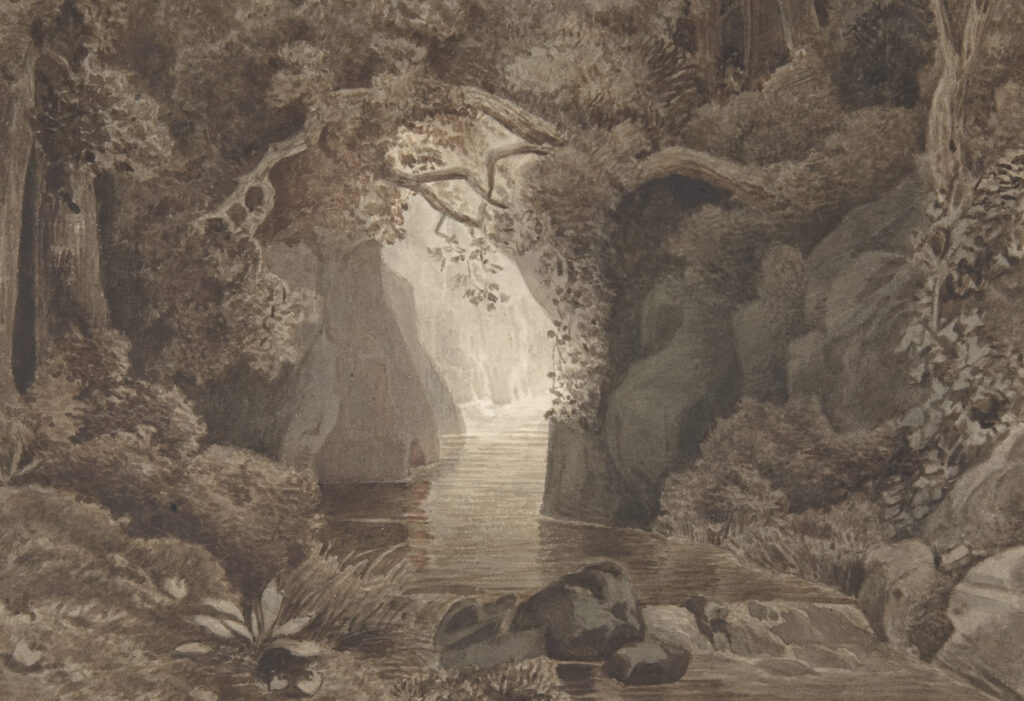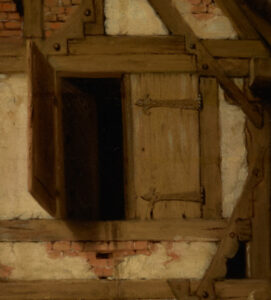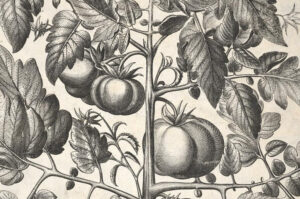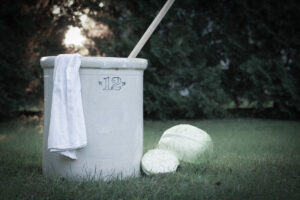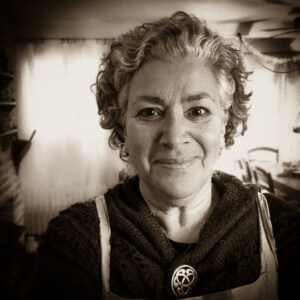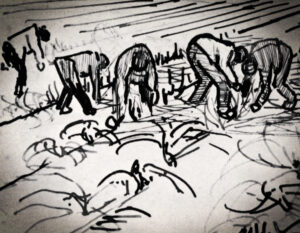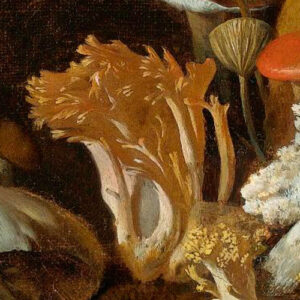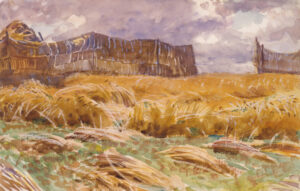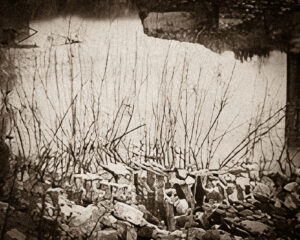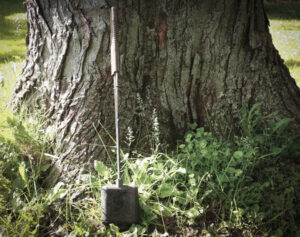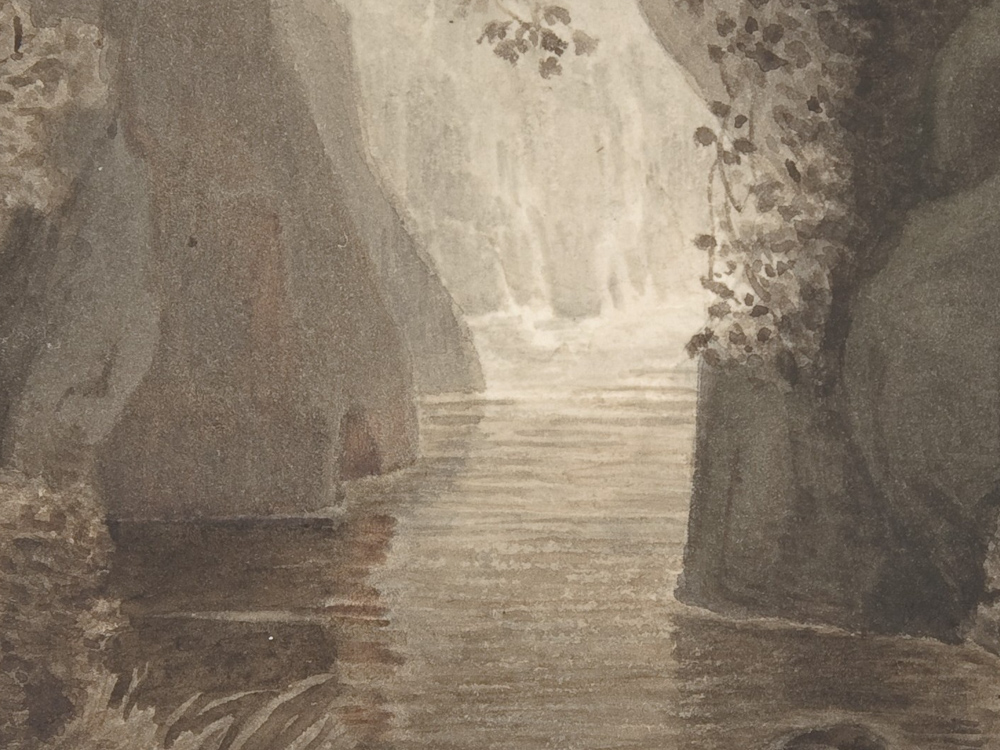
What's in a Name

Mrs. Gina Loehr
“Let me ask you all, if it will not be a great pleasure to converse about the country we inhabit, now that we have instituted names as if everything belonged to us?” So spoke Father in Johann David Wyss’ classic novel, Swiss Family Robinson.
The tale, as many will recall, is a glorious adventure about a shipwrecked family of six who, with diligence, ingenuity, cheerfulness, and faith, manage to establish themselves in security and joy on a deserted island. My husband began reading the novel aloud to our children about a week after the nation shut down due to the coronavirus. It was perfect timing.
The story of this family that was suddenly cut off from society and dependent entirely on one another for company and support inspired us in our own social seclusion. With unwavering optimism and faith in Providence, William, Elizabeth, and the Four Sons Robinson make the best of their circumstances, utilizing their God-given reason and powers of observation, as well as a few tools and supplies salvaged from their ship, to create a beautiful life for themselves. It helped us to stay positive during quarantine and foster a spirit of gratitude in spite of the challenges. And it also served as fodder for reflection upon a number of simple but important human themes, among them, the power of giving names.
One of the truly delightful moments in the book comes in chapter thirteen, when after having already spent many weeks in their new country, Father suggests taking ownership of their lot in a new way.
“What think you my friends,” he says to his family, “of giving a name to the place of our abode, and to the different parts of the country that are known to us?” The children proceed to offer ideas, and discuss them, and decide along with their parents upon the titles that will mark the various regions of the island that have become important to them.
What think you my friends,” he says to his family, “of giving a name to the place of our abode, and to the different parts of the country that are known to us?”
The bay where the ship was wrecked: Providence Bay, “Out of gratitude to God who conducted us hither in safety.” The spot where they first set up camp: Tent House. The place where the elder son defeated a shark: Shark Island.Their second home, a house built in a tree: The Falcon’s Nest, “For you are not arrived at the dignity of eagles, but are, too truly, poor simple birds of prey: and like the falcon, you also are, I trust, obedient, docile, active and courageous,” Father says.
And on it goes, each site of significance claimed, identified, and titled. So it is that all future discussion of their region will ring with the pleasure of both ownership and history. Few of us have been entrusted with an entire wilderness to tame and name. But there are elements of our lives that can be imbued with a taste of that same pleasure that comes from naming.
I have experienced this since getting married and moving out to my husband’s homestead in the country. Many distinct regions exist amidst the six-hundred acres owned by the extended family, and they are often identified with given names. I have to know the names to know where exactly my husband is working on a particular day.
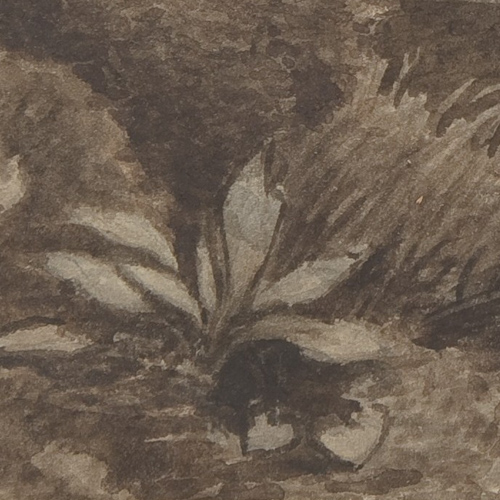 Some of the titles give credit to former owners: Flood Farm is an eighty-acre parcel adjacent to the barns that we bought from a guy named Zingsheim. It had originally belonged to the Flood family who finally had to sell, so their history trumps the investor who swooped in to buy the fields before we had the money to do so ourselves. Old Buck Acres is the ninety-five acre plot of hunting ground owned by my husband and his four brothers. The Lane refers to a specific grass driveway stretching a mile from the farm buildings back through acres of fields across from the house. Jupiter is the lazy compost pile where weeds get dumped, though I couldn’t tell you the origins of that celestial title.
Some of the titles give credit to former owners: Flood Farm is an eighty-acre parcel adjacent to the barns that we bought from a guy named Zingsheim. It had originally belonged to the Flood family who finally had to sell, so their history trumps the investor who swooped in to buy the fields before we had the money to do so ourselves. Old Buck Acres is the ninety-five acre plot of hunting ground owned by my husband and his four brothers. The Lane refers to a specific grass driveway stretching a mile from the farm buildings back through acres of fields across from the house. Jupiter is the lazy compost pile where weeds get dumped, though I couldn’t tell you the origins of that celestial title.
After enough time and incorporation into this family geography, I was able to contribute a few names of my own, which seem to have stuck. I dubbed the forest where we collected sap for syrup Maplewood — easy enough. Our home, on Banner Road, became Banner Manor. And the waterway that had previously been referred to simply as “the ditch” became much more charming, if may say so, since I re-christened it Grassy Creek.
The waterway that had previously been referred to simply as “the ditch” became much more charming, if may say so, since I re-christened it Grassy Creek.
Quarantine had enabled my children to spend many more hours than usual in the woods behind our home. Inspired by the Family Robinson, they proceeded to claim a section of the forest as their own and soon dubbed the area Songbird Settlement. Within it, they built a fort of stone and sticks, thatched with bark: Cobbler’s Cottage. They named the nearby creek Babbling Brook, built Tailor’s Teepee out of an old stump, laid a log over the creek and declared it Baker’s Bridge, established a first aid station at the base of a tree called Nurse’s Nest, and reclined on some huge roots by the stump that became Traveler’s Table. The woods have never been so enchanting.
The freedom and authority to issue names have real effect. It fosters pride and establishes a deeper personal connection. And, of course, it is one of the powers that separates us from the animals.
The story of creation recorded in the book of Genesis depicts the first man, Adam, in a garden surrounded by unnamed plants and creatures. He alone among the living beings is gifted with the authority and capacity to issue their names. Adam sees what he has been given and marks the uniqueness of each thing with an appellation of his choosing. It matters less what a thing is called – snail, mountain, chrysanthemum – and more that these names establish a distinct identity.
We issue names in general, and we also issue them in particular. There is a “cow,” but there is also “Bessy.” We name our geographical regions, our buildings, and our pets in the specific sense, but not usually our plants or our objects. Parents name their children in an act of love, intimacy, and authority. But, so far as I know, no animal has ever named another animal. They may be able to attract each other’s attention in a unique way, but they cannot appoint identity upon one another.
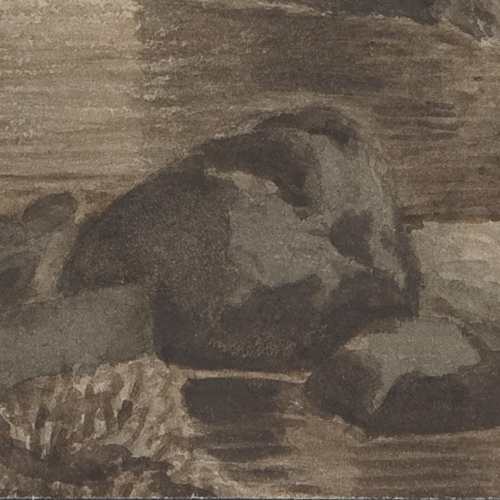 I recall when my first child was born, feeling the gravity of choosing a name. We had read books about the meaning of names. We consulted with my brother, a linguist, to make sure we wouldn’t accidentally name her something lovely in English that in some other language meant “stupid” or “mud.” We landed on Greek for wisdom – Sophia – and it must have taken me three months of holding my infant daughter in my arms before I really believed that she was, in fact, Sophia. It was a profound experience of responsibility and authority to name a child, and as a first-time mom, I could hardly believe that my choice had established her identity. It got easier with the other five kids.
I recall when my first child was born, feeling the gravity of choosing a name. We had read books about the meaning of names. We consulted with my brother, a linguist, to make sure we wouldn’t accidentally name her something lovely in English that in some other language meant “stupid” or “mud.” We landed on Greek for wisdom – Sophia – and it must have taken me three months of holding my infant daughter in my arms before I really believed that she was, in fact, Sophia. It was a profound experience of responsibility and authority to name a child, and as a first-time mom, I could hardly believe that my choice had established her identity. It got easier with the other five kids.
This is not to say that in naming my children, I actually gave them their deepest identity as unique, unrepeatable human beings with eternal souls and a dignity beyond the stars. Naming does not establish value. But it does establish a relationship between the namer and the name, and it does pave the way for a sentimental connection between the two.
At a more day-to-day level, naming our homes, or our cars, or our favorite hideaways, imbues them with a hint of that sentimental connection. It reminds us that these things begin to belong to us, or at least to our minds and our memories, through our history with them. Naming reminds us that we do not live a generic life on a generic planet. We live in this particular place, at this particular time, and, I would argue, for some particular purpose.
Whether or not we are thrilled with where we find ourselves — inhabiting the home of our dreams in the country of our choice, or washed ashore through a metaphorical shipwreck — we would all do well to follow the example of Master Robinson both by assigning titles to those things which are closest and dearest to us, and by pausing a moment to rejoice in our God-given capacity to endow a place, an object, an animal, or perhaps even a person, with the gift of a name.
